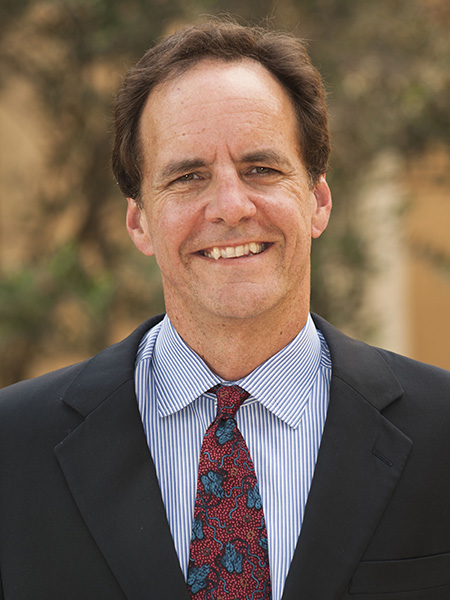
Robert J. Kleberg, Jr. and Helen C. Kleberg College of Sciences Endowed Professorship
Karl Klose, PhD
Robert J. Kleberg, Jr. and Helen C. Kleberg College of Sciences Endowed Professorship
Professor, Molecular Microbiology and Immunology
Author of more than 90 peer-reviewed publications, Karl Klose joined UTSA in 2004 and is the founding director for the South Texas Center for Emerging Infectious Diseases, where nearly two dozen UTSA researchers are studying infectious diseases such as chlamydia, valley fever, Lyme disease, malaria to develop new diagnostics, therapeutics and vaccines to reduce the threat that infectious organisms pose to humans.
Klose, who maintains adjunct positions at the UTHSCSA and Texas Biomedical Research Institute, studies how bacteria cause disease, with the goal of developing new vaccines and therapeutics, specifically to combat cholera and tularemia. His research has been funded by a number of agencies, including the Department of Defense, National Institutes of Health, San Antonio Area Foundation and Thrasher Research Fund.
Klose’s lab is interested in bacterial pathogenesis—how bacteria cause disease. Klose has worked most extensively with Vibrio cholerae, the bacterium that causes cholera, and is also researching Francisella tularensis, the bacterium that causes tularemia, or rabbit fever. Very little is known about F. tularensis or about tularemia. It is a highly virulent organism and can easily be aerosolized, so it is classified by the Centers for Disease Control (CDC) as a Category A select agent with the highest potential to be used as a biological weapon. The lab is working to identify genetic factors responsible for F. tularensis to cause disease and to develop suitable vaccine candidates to protect against tularemia infection.
Klose has served as an active faculty member in the UTSA Center for Infection Genomics (CEIG). The center was established in 2011 with funding from the U.S. Department of Defense Army Research Office to support microbiology research, teaching and outreach activities aligned with Army priorities. The CEIG aims to increase the pool of talented high school students pursuing microbiology research careers.
Klose received the UTSA President’s Distinguished Achievement Award for Research Excellence in 2009. In 2015, he was named a fellow by the American Academy of Microbiology.
Klose earned bachelor’s degrees in biochemistry and German Literature from the University of California at San Diego, and a doctoral degree in microbiology from the University of California at Berkeley. He followed this with postdoctoral studies at Harvard Medical School, and was a faculty member at the UTHSCSA prior to his arrival at UTSA.